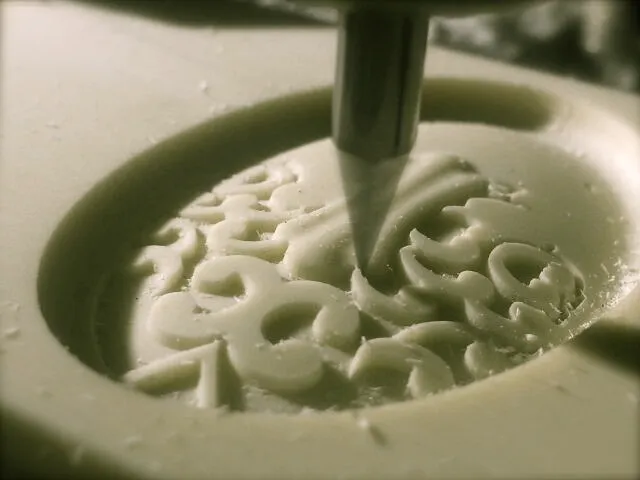In the business of saving elephants – Sonia Agarwal’s Whitenife
There have been many reports and articles that have attempted to demystify a millennial. Marketers, brands, parents and almost the entire world seem to be trying to figure them out. If you need more proof of what the big fuss is, look no further. When most of us are still figuring out what we want to do with life, this millennial -- 22-year old Sonia Agarwal -- has started two companies and also serves on the board of directors of a textile giant. Sonia co-founded Freshmentors with Naman Shah a year back and about the same time also started Whitenife. Whitenife is creating an alternative to one of the oldest and most brutal fancies of human beings – ivory.

Whitenife has the exclusive rights to a material called ELFH – a mineral based composite having 89% properties similar to genuine elephant ivory. Like with ivory, an artisan must possess advanced skills set to get the sharpness and desired detailing while working with ELFH. When we quizzed Sonia how she came across this material, Sonia says very matter-of-factly: “I have always been a very independent girl. I am always scavenging for opportunities to build upon and ELFH was on such opportunity,” says this young entrepreneur. Sonia is also the scion of Donear industries and has therefore always been interested in business, “entrepreneurship runs in my blood,” laughs the young lady.
The born entrepreneur
Sonia says she has been working since the age of 12 and has in the past worked as a researcher with AC Nielsen, a journalist with CNN-IBN and been involved in the marketing of fashion brands like Accessorize, Nautica and Guess among others. “I even thought of dropping out of college, but decided to continue for the sake of getting a formal degree,” says the entrepreneur.
ELFH has been developed by a group of European scientists and is currently being manufactured abroad. Sonia and Whitenife imports the material and works with about 60 artisans in India to develop the products. “The Wildlife Act, 1972 bans the trade of ivory, yet the demand for ivory continues to prevail. Today many artisans use camel bones to make designs and pass off as ivory. Even in this way animals and wildlife continue to be at risk,” says Sonia. With ELFH, she wants to provide an employment to the large number of artisans who still depend on ivory and artifacts for a livelihood. Sonia says there is a vast population of 3 lakh artisans and their families that continue to be dependent on bone craftsmanship and with the ban on ivory, this skilled population has been forced to migrate or take up other jobs to sustain themselves. ELFH will also help prevent the illegal poaching of elephants that is still prevalent in large parts of the world, says Sonia.
A humane business

ELFH can be used just like ivory to make jewellery, paintings, decorative artifacts and any other items that the real thing can be used for. Sonia has been a one-woman army and has spent the last one year identifying good quality artisans who can work with ELFH and help create a continued supply of products to be sold.
Apart from artisans in Kerala and Rajasthan, Sonia has plans to reach out to markets like Japan, where she says elephants continue to be killed in large numbers. “There are certain buttons that are worn by Japanese women on their kimonos and you cannot imagine the number of elephants that are killed just to make those buttons,” rues Sonia.
The patent for ELFH continues to remain with the scientists who discovered the material, but Sonia has the exclusive rights to make and sell products using the material.
However, one of her biggest challenge in setting up and continuing Whitenife has been when she approached the artisans. “This is a market that does not exist so far. The artisans look at me very suspiciously and I had to really work hard to gain their trust,” says Sonia. Being educated abroad and not having much exposure to working at the grassroots was another major hurdle she faced. However all that is in the past now, and Sonia is looking forward to spreading the goodness of ELFH around the world.
The sky is the limit

We could sense the excitement Sonia has for the products to be made using ELFH. Whitenife will launch its first collection of products next month in Mumbai and Sonia is quite thrilled about the impending launch. Sonia is quite sure of the success of the product and we cannot but help agree with her optimism, because if you see the candle stand (pictured here) you can see how beautiful a finished product of ELFH is.
Apart from creating products with the help of artisans, Sonia has also tied up with number of well-known painters and designers to supply ELFH to. These partners will inturn use ELFH in the most creative way possible and design products that can be sold by Whitenife. The startup is also planning to setup its online store to sell the various products made by artisans and designers associated with Whitenife. Art fairs and exhibitions are another option of spreading the word, says Sonia. Conducting auctions of products made from ELFH will be another way used to sell the products. While ELFH products look as pretty as ivory, they only cost one-tenth of the real thing.
As far as the market for products are concerned, Sonia says she will be targeting all upmarket connoisseurs of art. She wants to reach out to every part of the world, where ivory products are still being produced or used illegally and educate them about ELFH. A certain part of her business profits will also be given to elephant conservation and adoption, says Sonia.
preethi@yourstory.in







